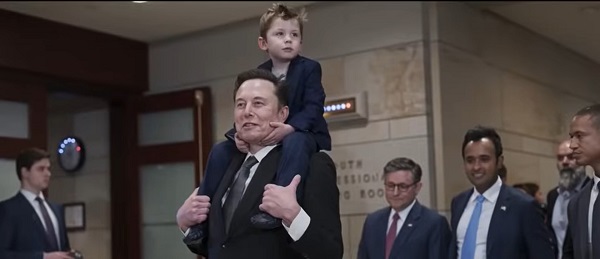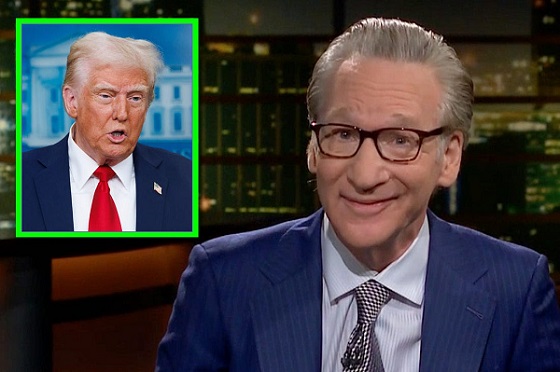Business
DOGE Must Focus On Big Picture To Achieve Big Change


From the Daily Caller News Foundation
By Jenny Beth Martin
President-elect Donald Trump’s new Department of Government Efficiency (DOGE) is wasting no time in laying the groundwork for its effort to cut the size and scope of government. That Elon Musk and Vivek Ramaswamy are the right men to lead this effort is beyond doubt — Musk famously slashed the workforce at Twitter after he bought it and Ramaswamy made shrinking the federal workforce the centerpiece of his campaign for president a year ago.
They know how to find cost savings, and they have shown they are not afraid to do so.
Visiting with congressional Republicans last week, Musk and Ramaswamy even declared they would be keeping a “naughty and nice” list of those who work with them to save taxpayer money and those who do not.
To that end — because who, especially at this time of year, doesn’t want to be on a “nice” list? — here are some thoughts.
First, they are going to have to look at the big picture. They won’t find the $2 trillion Musk pledged to save by focusing on the old standby, “waste, fraud, and abuse.” Yes, they are certainly going to find plenty of waste, fraud, and abuse in the Government Accountability Office (GAO) reports their staff will review, but that will not be enough.
To find the big savings, they are going to have to shrink not just the size of the federal government, but its scope. The federal government is not huge just because it spends money inefficiently, it is huge because it is doing things it has no business doing.
Second, they are going to have to take advantage of the fact that much of that huge government was never specifically authorized by the Congress. The federal behemoth was created by the mass of alphabet soup executive branch agencies that have for decades been imposing regulations that have the force of law, even though the Congress never approved them.
Reversing that is going to require taking a chain saw to federal regulations. And we will need a proportionally reduced federal workforce to match the reduced federal regulatory regime. That should not be a problem; huge numbers of federal employees still have not come back to work in their offices, even though the COVID-19 crisis ended years ago. The DOGE should recommend that any federal employee who refuses a directive to come back to work in the office should be terminated. That will save taxpayer money, too — a 10% cut in the federal workforce would yield about $40 billion in savings every year.
Third, recognize that to make permanent change, executive orders will not be enough — because executive orders can be reversed by the next president. Laws, on the other hand, can only be overturned with new action by the Congress and the president. That makes laws tougher to overturn.
One of the legislative changes that would serve the long-term interest in getting the federal government under control would be passage of the REINS Act, a proposed law that would require any federal agency that wanted to impose a new regulation that would have a significant impact on the economy to first gain approval from Congress in the form of an affirmative vote in both houses, and then the signature of the president. As I said when discussing this on my recent podcast with American Commitment’s Phil Kerpen, ‘Imagine that — Congress votes on something before it becomes law!”
A second legislative change that could help make a major difference would be reform of the civil service laws that govern the federal workforce. Musk and Ramaswamy are going to recommend significant elimination of positions in the federal workforce. Under the current system, it is significantly more difficult to remove employees than it is in the private sector — even employees who engage in insubordination or flagrantly breaking rules. And before you retort, “but the tradeoff they agree to, and that we must honor, is that civil service employees accept lower compensation in exchange for that greater job security,” a recent analysis by the Cato Institute shows that “the average federal civilian worker made $157,000 in wages and benefits in 2023, much higher than the average U.S. private sector wages and benefits of $94,000.”
Greater job security on top of higher compensation? That wasn’t the deal.
Rep. Barry Loudermilk (R-Ga.) introduced his MERIT Act in the last Congress. It was a proposed law that would have strengthened agency management’s power to remove poor employees, expedited timelines and made other reforms to bring the system closer to the private-sector model. Something along those lines could be extremely helpful as federal managers move to meet their reduced workforce needs.
The DOGE enterprise begins with broad public support — a recent poll conducted by McLaughlin & Associates for the organization I lead, Tea Party Patriots Action, shows that 71% of Americans support the creation of DOGE and 65% support firing government employees who do not return to their offices to work.
Musk and Ramaswamy have taken on a huge task, and they recognize the opportunity before them. By focusing on big-picture efforts to shrink the size and the scope of the federal government, they can help restore it to its constitutional moorings, with government officials in a smaller, less intrusive, less expensive government that is more responsive to the needs, desires, and authority of the citizens on whose behalf and in whose name they toil.
Jenny Beth Martin is honorary chairman of Tea Party Patriots Action.
2025 Federal Election
Poilievre will cancel Mark Carney’s new Liberal packaging law and scrap the Liberal plastic ban!

From Conservative Party Communications
Conservative Leader Pierre Poilievre promised today that a new Conservative government will stop Mark Carney’s proposed Liberal food tax and scrap the existing Liberal plastic ban. Poilievre will:
- Stop proposed new labelling and packaging requirements that will raise the cost of fresh produce by as much as 34% and cost the average Canadian household an additional $400 each year.
- Scrap the Liberal plastics ban, including the ban on straws, grocery bags, food containers and cutlery, and other single-use plastics, letting consumers and businesses choose what works for them.
- Protect restaurants, grocers, and low-income Canadians from one-size-fits-all packaging rules that disproportionately affect those who can least afford it.
“After the Lost Liberal Decade, many Canadians can barely afford to put food on the table. And now Mark Carney and the Liberals want to make it even harder with a new food packaging law that will raise the price of food–again,” said Poilievre. “A new Conservative government will keep food prices down by scrapping the Liberal plastic ban and stopping Carney’s new Liberal food tax.”
After a decade of out-of-control spending and massive tax increases, families are spending $800 more on food this year than they did in 2024, and food banks had to handle a record two million visits in a single month. In Montreal, 44 percent of CEGEP students are experiencing some form of food insecurity, while places like Hawkesbury, Kingston, Toronto and Mississauga have all declared food insecurity emergencies.
And food prices are still rocketing upwards, surging by 3.2% over the last year, with no end in sight. In the last month alone, food inflation increased by 1.9 percentage points—the largest monthly jump in food prices in decades.
As if this wasn’t bad enough, Liberals have made life even more expensive and inconvenient for Canadians by banning plastics – including everything from straws to bags to food packaging. The current Liberal ban on single-use plastics will cost Canadians $1.3 billion dollars over the next decade.

Now Mark Carney wants to make it worse by adding complicated and costly new food packaging rules that will drive up the price of food even more–in effect, a new Liberal food tax. Plastic food packaging makes up 1/3 of all plastic packaging in Canada. The proposed Liberal food tax will cost the average Canadian household an additional $400 each year, waste half a million tonnes of food, decrease access to imported fruit and produce, and increase food inflation. The Chemistry Industry Association of Canada has also warned that this tax will put up to 60,000 Canadians out of work.
“The Liberals’ ideological crusade against convenience has already driven up food prices and the last thing Canadians need is Mark Carney’s new food tax added directly to your grocery bill,” said Poilievre. “The choice for Canadians is clear, a fourth Liberal term that will make food even more expensive or a new Conservative government that will axe the food tax and bring back straws, grocery bags and other items, to make life more affordable and convenient for Canadians – For a Change.”
Business
Ted Cruz, Jim Jordan Ramp Up Pressure On Google Parent Company To Deal With ‘Censorship’

From the Daily Caller News Foundation
By Andi Shae Napier
Republican Texas Sen. Ted Cruz and Republican Ohio Rep. Jim Jordan are turning their attention to Google over concerns that the tech giant is censoring users and infringing on Americans’ free speech rights.
Google’s parent company Alphabet, which also owns YouTube, appears to be the GOP’s next Big Tech target. Lawmakers seem to be turning their attention to Alphabet after Mark Zuckerberg’s Meta ended its controversial fact-checking program in favor of a Community Notes system similar to the one used by Elon Musk’s X.
Cruz recently informed reporters of his and fellow senators’ plans to protect free speech.
Dear Readers:
As a nonprofit, we are dependent on the generosity of our readers.
Please consider making a small donation of any amount here. Thank you!
“Stopping online censorship is a major priority for the Commerce Committee,” Cruz said, as reported by Politico. “And we are going to utilize every point of leverage we have to protect free speech online.”
Following his meeting with Alphabet CEO Sundar Pichai last month, Cruz told the outlet, “Big Tech censorship was the single most important topic.”
Jordan, Chairman of the House Judiciary Committee, sent subpoenas to Alphabet and other tech giants such as Rumble, TikTok and Apple in February regarding “compliance with foreign censorship laws, regulations, judicial orders, or other government-initiated efforts” with the intent to discover how foreign governments, or the Biden administration, have limited Americans’ access to free speech.
“Throughout the previous Congress, the Committee expressed concern over YouTube’s censorship of conservatives and political speech,” Jordan wrote in a letter to Pichai in March. “To develop effective legislation, such as the possible enactment of new statutory limits on the executive branch’s ability to work with Big Tech to restrict the circulation of content and deplatform users, the Committee must first understand how and to what extent the executive branch coerced and colluded with companies and other intermediaries to censor speech.”
Jordan subpoenaed tech CEOs in 2023 as well, including Satya Nadella of Microsoft, Tim Cook of Apple and Pichai, among others.
Despite the recent action against the tech giant, the battle stretches back to President Donald Trump’s first administration. Cruz began his investigation of Google in 2019 when he questioned Karan Bhatia, the company’s Vice President for Government Affairs & Public Policy at the time, in a Senate Judiciary Committee hearing. Cruz brought forth a presentation suggesting tech companies, including Google, were straying from free speech and leaning towards censorship.
Even during Congress’ recess, pressure on Google continues to mount as a federal court ruled Thursday that Google’s ad-tech unit violates U.S. antitrust laws and creates an illegal monopoly. This marks the second antitrust ruling against the tech giant as a different court ruled in 2024 that Google abused its dominance of the online search market.
-

 espionage2 days ago
espionage2 days agoEx-NYPD Cop Jailed in Beijing’s Transnational Repatriation Plot, Canada Remains Soft Target
-

 Business2 days ago
Business2 days agoDOGE Is Ending The ‘Eternal Life’ Of Government
-

 2025 Federal Election2 days ago
2025 Federal Election2 days agoCanada drops retaliatory tariffs on automakers, pauses other tariffs
-

 2025 Federal Election2 days ago
2025 Federal Election2 days agoTucker Carlson Interviews Maxime Bernier: Trump’s Tariffs, Mass Immigration, and the Oncoming Canadian Revolution
-

 2025 Federal Election2 days ago
2025 Federal Election2 days agoBREAKING from THE BUREAU: Pro-Beijing Group That Pushed Erin O’Toole’s Exit Warns Chinese Canadians to “Vote Carefully”
-

 Daily Caller1 day ago
Daily Caller1 day agoTrump Executive Orders ensure ‘Beautiful Clean’ Affordable Coal will continue to bolster US energy grid
-

 Daily Caller1 day ago
Daily Caller1 day agoDOJ Releases Dossier Of Deported Maryland Man’s Alleged MS-13 Gang Ties
-

 2025 Federal Election1 day ago
2025 Federal Election1 day agoAllegations of ethical misconduct by the Prime Minister and Government of Canada during the current federal election campaign








